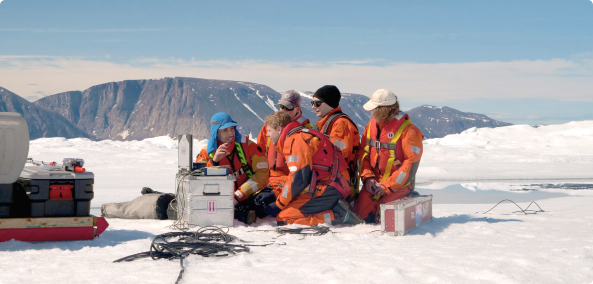The Arctic Futures Symposium: Discussing the Challenges and Solutions for the Arctic Region

On October 14th & 15th, the European Parliament hosted the Arctic Futures Symposium, an event organized by the International Polar Foundation in collaboration with the Aspen Institute and the Prince Albert II of Monaco Foundation. The symposium, which welcomed over a hundred experts from North America (US and Canada), Europe (Arctic countries and others) and Australia included four workshops which aimed to "contribute to the informal dialogue between the EU and the Arctic countries", said International Polar Foundation President, Alain Hubert on the opening day.
With about 200 delegates attending and various high-profile hosts featured, the plenary session of the second day of the symposium brought interesting conclusions which will help improve governance of the Arctic. On the second day of the event, HSH Prince Albert II of Monaco highlighted the contributions of the scientists on a better understanding of the challenges at hand in the Arctic. While underlining the toll paid by the Arctic as a consequence of the world’s excesses, the Prince expressed his hopes for the Cancun Climate meeting to be held in December.
In his speech to the plenary session on the second day of the symposium, President of the European Council Herman Van Rompuy underlined the change of mentality regarding the Arctic and the recognition of the region’s importance to Europe and the rest of the world. He further lauded the EU’s contribution to assessing the impact of climate change on the Arctic and its efforts to engage dialogue with the indigenous people.
A changing Arctic and the threats and opportunities that this brings were openly discussed during the workshops held on the first day of the symposium. The sessions called for an urgent assessment of the issues raised by the development of several areas of the Arctic, particularly regarding the increasing commercial and tourism maritime activities. The discussions showed that the opportunities the changing Arctic offer should be approached with caution. While none denied that development in the Arctic is a natural evolution, the unique situation of the region and the global consequences stemming from changes occurring there call for further dialogue and improved governance regimes. This dialogue, the participants also stressed, should include the indigenous peoples who live in the Arctic. And while there should be a focus on the preservation of fragile ecosystems, any future discussion will need to take into account the rights of the Arctic circumpolar nations as well as indigenous peoples regarding the exploitation of the natural and living resources of the region.
Development will bring both threats and opportunities, and seizing the opportunities involves a responsibility of managing and handling the threats. While development in the Arctic is inevitable, most participants of the symposium agreed that certain matters needed to be investigated and that the establishment of marine reserves was one potential option for the future.
Overall, the Arctic Futures Symposium was a timely gathering of scientists, policymakers, and stakeholders presenting their experiences and research and having the opportunity to debate and understand the complicated issues facing the Arctic.
Download





















